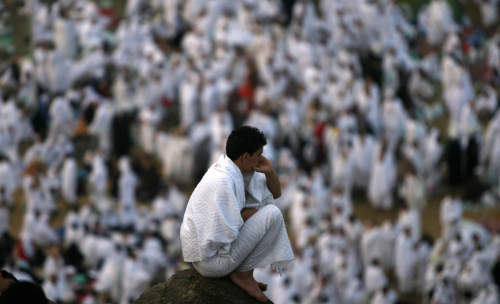
Ali bin Abu Talib went to Ash’ath to console him upon the death of one of his sons. He said,
“If you are sad, then you are deserving of mercy, but if you are patient, then Allah gives you something in place of what was lost or destroyed. Know that if you are patient, everything that was destined for you and preordained for you will occur and you will be rewarded. If you complain and are hopeless, then likewise all that was destined for you will occur, except that you will be blamed for your impatience in Allahs Will.”
source: Gems & Jewels; Wise Sayings, Interesting Events & Moral Lessons from Islamic History, Compiled by: Abdul-Malik Mujahid, pg 59






